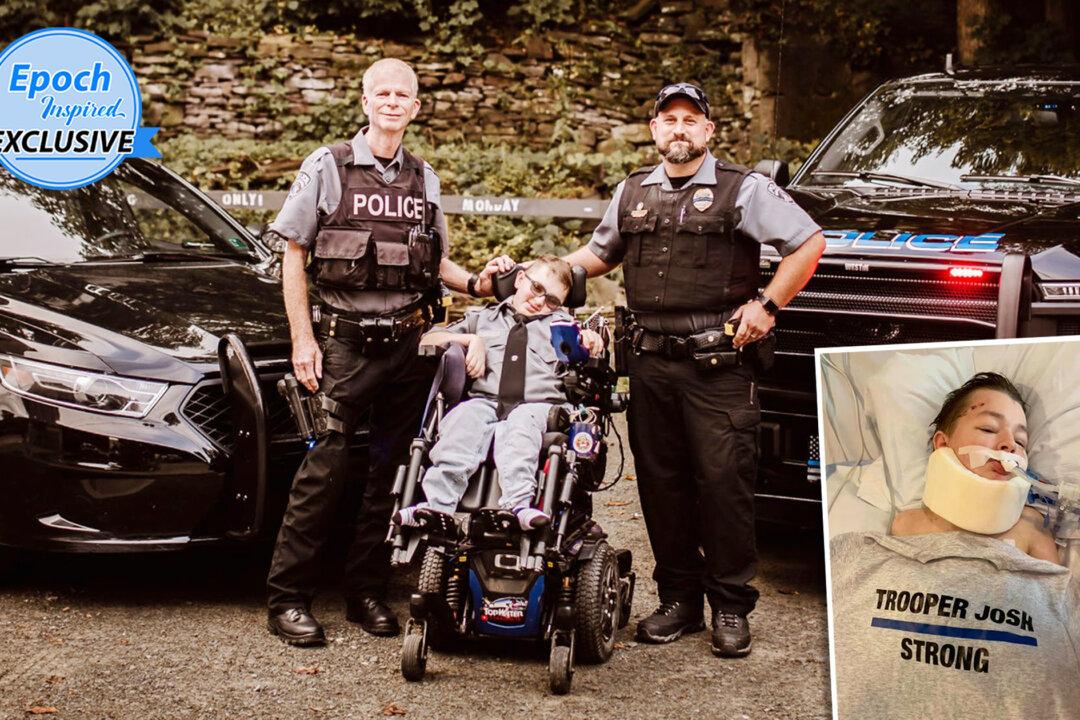All because his parents refused to abort him, a boy whose mother was told he would never live past the age of 2 has recently celebrated 17 years of life with some of his favorite people—local police officers.
Joshua Bourassa, of Pennsylvania, has Krabbe disease, an inherited condition that destroys the protective coating of nerve cells in the brain, and eventually the nervous system, resulting in a massively reduced life expectancy. Patients rarely live past their second birthday.





